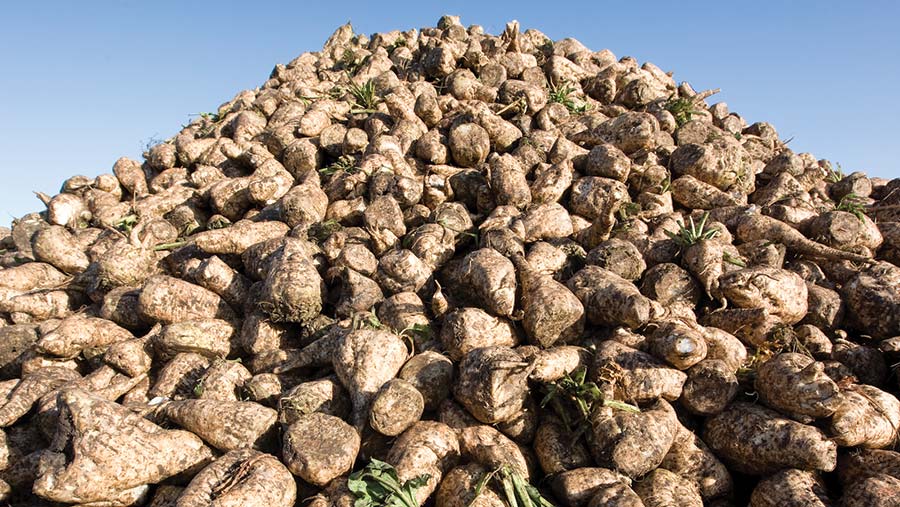FW Opinion: UK beet growers need neonics as much as the French
 © Tim Scrivener
© Tim Scrivener It’s a well-established fact that the French government is more supportive of its farmers than our own.
For evidence, look no further than this week’s announcement that France is to lift its ban on neonicotinoid seed treatments to help its sugar beet growers through an “unprecedented crisis”, while Defra has confirmed it is sticking to the EU rulebook.
See also: France to lift neonics ban to save beet industry
About the author
 Philip Clarke
Philip Clarke
Executive editor, Farmers Weekly
Contact:
E: philip.clarke@markallengroup.com
T: @FWphilclarke
Read more articles by Philip Clarke
The ban on neonics for sugar beet has always been questionable. Intended to protect bees from the supposedly damaging effects of this seed treatment, the reality is that bees are rarely found in fields of beet, as it is a non-flowering crop.
The consequence has been an increased use of alternative post-emergence sprays, which can have a more damaging effect on the environment and on beneficial insects.
Despite its proclamations that Brexit will allow the government to “take back control”, the word from Defra this week is that the ban on neonics is here to stay.
Officials make the point that Defra’s decisions are based on the recommendations of the Health and Safety Executive and the Expert Committee on Pesticides, which have referred to “a significant environmental risk posed by neonicotinoids”.
They add that, after the Brexit transition (31 December 2020), the UK will operate an autonomous pesticides regime, guided by science.
But already Defra has a history of revising its experts’ recommendations, such as allowing the use of copper hydroxide to control blight in organic potatoes and Diquat for linseed this season.
Post-transition – or preferably before – Defra must offer a similar derogation for sugar beet growers to use neonics again so that, come 2021, they are not put at a competitive disadvantage to their French, or indeed their Belgian, Spanish and Polish counterparts.
If not, then the inevitable consequence will be an increase in sugar imports – either in cane form, or from countries once again using neonics on their beet.
